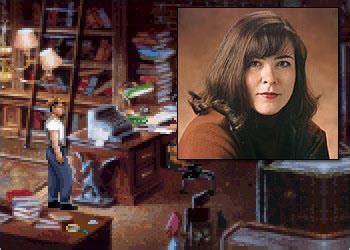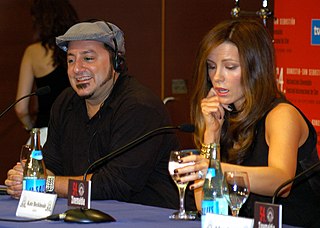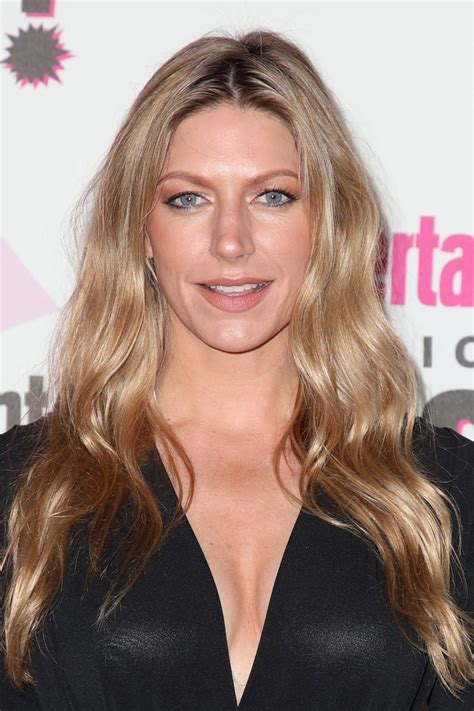A Quote by Sam Lake
I think that in general - well, at least it's true for me - you tend to put something of yourself into the story as a whole. Not necessarily in any character, you understand. But you've got your own way of looking at the world, and that naturally will affect how you craft a story.
Related Quotes
What's your story? It's all in the telling. Stories are compasses and architecture; we navigate by them, and to be without a story is to be lost in the vastness of world that spreads in all directions like arctic tundra or sea ice. To love someone is to put yourself in their place, we say, which is to put yourself in their story, or figure out how to tell yourself their story. Which means that a place is a story, and stories are geography, and empathy is first of all an act of imagination, a storyteller's art, and then a way of traveling from here to there.
The best time to tell your story is when you have to tell your story. When it's not really a choice. But then, when you get that first, messy, complicated version down, you have to read it over and be very tough on yourself and ask, 'Well what's the story here?' If you're lucky enough to have someone you trust looking over your shoulder, he or she can help you if [you] lack perspective on your own story.
Two things have been bothering me for a long time. The first is the tendency of people in general - and that includes Christians - to "relativize" religion. Any religious belief is only "true for," so to speak - true for you or true for me or true for those people on the other side of the world. Second, I've been bothered by how poorly believers understand their own Story. They have bits and pieces, of course, but they're missing enough that they can easily become prey to ideas that sound spiritual, but end up being foolishness in the end.
I went to a seminar early in my career on the craft of storytelling by Robert McKee. It was really life altering. There are basic principles on how to craft an engaging story and he covers them well. He's got a book out, 'Story,' that I would highly recommend to anyone interested in improve their storytelling.
I do think people need to recognize that a lot of journalists want to write a story a certain way because the story will be better or the portrayal will be better, or at least recognize that whenever you're looking at something, you're seeing it through somebody's eyes who may actually not be the person who is the most insightful.
A character does seem to have a life of its own, but I have what I'd describe as a very fluid relationship with them - as I'm thinking of what they will be like, they shift in and out of focus - they are a projection of some idea inside of me, even if a character is inspired by an actual person, I'm well aware that it is not that person. My job is to identify the essence of the character, and to bring them to life long enough to commit the acts, say the words or simply "be" in a way that allows them to affect and be affected by other elements and events in the imaginary world of a story.
I gravitate to stories that I feel I can tell well, and that will have a positive affect on the viewer. That doesn't mean it always has to have a happy ending, but I always like to try to tell a story that will make people think in a new way or come to their own constructive resolution on a particular topic. Or simply, just to experience something collectively and say: "Yeah, I know how that feels".
I don't think an actor needs to necessarily go through his things to do his job. I think it's way more important to imagine. And then, when you're imagining, your experiences, your images and your own personal things will show up, but you keep imagining. You don't get stuck in your own personal things, otherwise you are telling your story in every character, and that's not interesting for anybody.
I was working within a figurative representational framework, and there was a sense of reading the painting as a transparency, or truth, or autobiography, which I think is partially the burden of artists of color - or women, or anybody who is representing a so-called minority position. Are you actually telling a true story, or your own story? You don't just get to tell a story. The readings of the work didn't necessarily conform to my own understanding of mythology, where violence and eroticism and the body and all of these different forms coexist all the time.
The Universe story is the quintessence of reality. We perceive the story. We put it in our language, the birds put it in theirs, and the trees put it in theirs. We can read the story of the Universe in the trees. Everything tells the story of the Universe. The winds tell the story, literally, not just imaginatively. The story has its imprint everywhere, and that is why it is so important to know the story. If you do not know the story, in a sense you do not know yourself; you do not know anything.






































